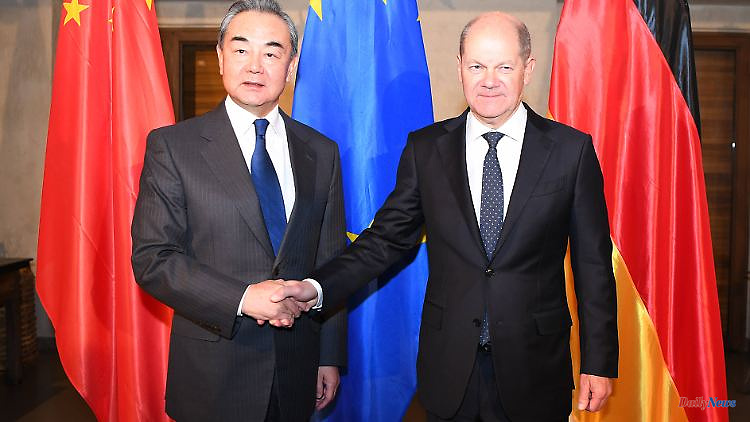The pandemic is over. Now it's time for China to stimulate its economy again. On the fringes of the Munich Security Conference, representatives of Beijing want to revive old partnerships - including with Germany. How Chancellor Scholz will react to the offer is still unclear.
China wants to give its relations with Germany new impetus. According to the Chinese state agency Xinhua, China's top foreign policy leader Wang Yi said at a meeting with Chancellor Olaf Scholz on the sidelines of the Munich Security Conference that they are ready to fully resume exchanges with Germany and Europe in various areas. So far, there has been no statement from the German side about the meeting.
They want to "expand mutually beneficial cooperation and improve mutual understanding," said Wang Yi, who also met with Foreign Minister Annalena Baerbock in Munich. China has left the effects of the corona pandemic behind and is now experiencing a robust economic recovery.
According to Chinese information, Wang Yi also exchanged views with German politicians about the conflict in Ukraine. Both countries should share responsibility for maintaining world peace and addressing global challenges, Wang Yi said. China is "always on the side of peace". They are committed to peace talks and an early ceasefire. He therefore hopes that Germany will play "a constructive role in de-escalating the situation".
Meanwhile, NATO Secretary General Jens Stoltenberg warned against too great a dependence of European countries on authoritarian states - and expressly referred to Beijing. "We shouldn't make the same mistake with China," said excerpts of a speech Stoltenberg would give at the Munich Security Conference. "What is happening in Europe today could happen in East Asia tomorrow," said Stoltenberg.
According to him, the West should not become too dependent on imported products and raw materials, avoid exporting important technologies and "protect our critical infrastructure at home". While trade and economic engagement should not stop in China, "our economic interests cannot outweigh our security interests."












